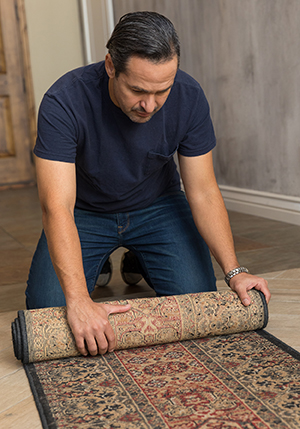Preventing Falls: Are You at Risk of Falling?
As you get older, you're not as steady on your feet as you once were. And you may have health problems you didn't have when you were younger. So it's not surprising that older people are more likely to trip and fall. Falling can be very serious. It can change your overall health and quality of life. That's why it's important to be aware of your own risk of falling.
The dangers of falling
Falls are one of the main causes of injury in people over age 65. An older person who falls may take longer to get better than a younger person. And, after a fall, an older person is more likely to have problems that don't go away. So preventing falls can help you prevent serious health problems.
Are you at risk of falling?
Answer these questions to rate your level of risk:
-
Have you fallen or stumbled in the last year?
-
Are you over age 65?
-
Are you ever dizzy or lightheaded with standing?
-
Do you have a hard time getting in and out of the bathtub or on and off the toilet?
-
Do you lean on objects to help you get around? Or do you use a cane or walker?
-
Do you have vision or hearing problems? For example, do you need glasses or hearing aids?
-
Do you have 2 or more long-lasting (chronic) health conditions?
-
Do you take 3 or more medicines?
-
Have you felt depressed recently?
-
Have you had more trouble with your memory in recent months?
-
Are there hazards in your home that might cause you to fall, such as loose rugs or poor lighting?
-
Do you have a pet that jumps on you or might trip you?
-
Have you stopped getting regular exercise?
-
Do you have diabetes?
-
Do you have a nervous system disease, such as Parkinson or Alzheimer disease?
-
Do you drink alcohol?
-
Do you walk barefoot or only in socks at home?
You can help prevent falls
If you answered "yes" to any of the above questions, take steps to reduce your risk of a fall. Keeping track of health conditions and keeping walkways in your home free of clutter are just two ways. Changing is sometimes easier said than done. But keep in mind that even small changes can make you less likely to fall. For example, remove loose rugs in your home.
 |
| Ask for help to reduce risk of falling in your home. |
Fear of falling
It's normal to be scared of falling, especially if you've fallen before. But being afraid can actually make you more likely to fall. This is because:
-
Fear might cause you to become less active. Being less active can lead to a loss of strength and balance.
-
Fear can lead to isolation from others, depression, or the use of more medicines or alcohol. And all these things make falling even more likely.
To stop the cycle, learn more about ways to prevent falling. Talk to your health care provider for more information. As you take control, you may find yourself feeling less afraid.
Online Medical Reviewer:
Jessica Gotwals RN BSN MPH
Online Medical Reviewer:
Melinda Murray Ratini DO
Date Last Reviewed:
4/1/2025
© 2000-2025 The StayWell Company, LLC. All rights reserved. This information is not intended as a substitute for professional medical care. Always follow your healthcare professional's instructions.